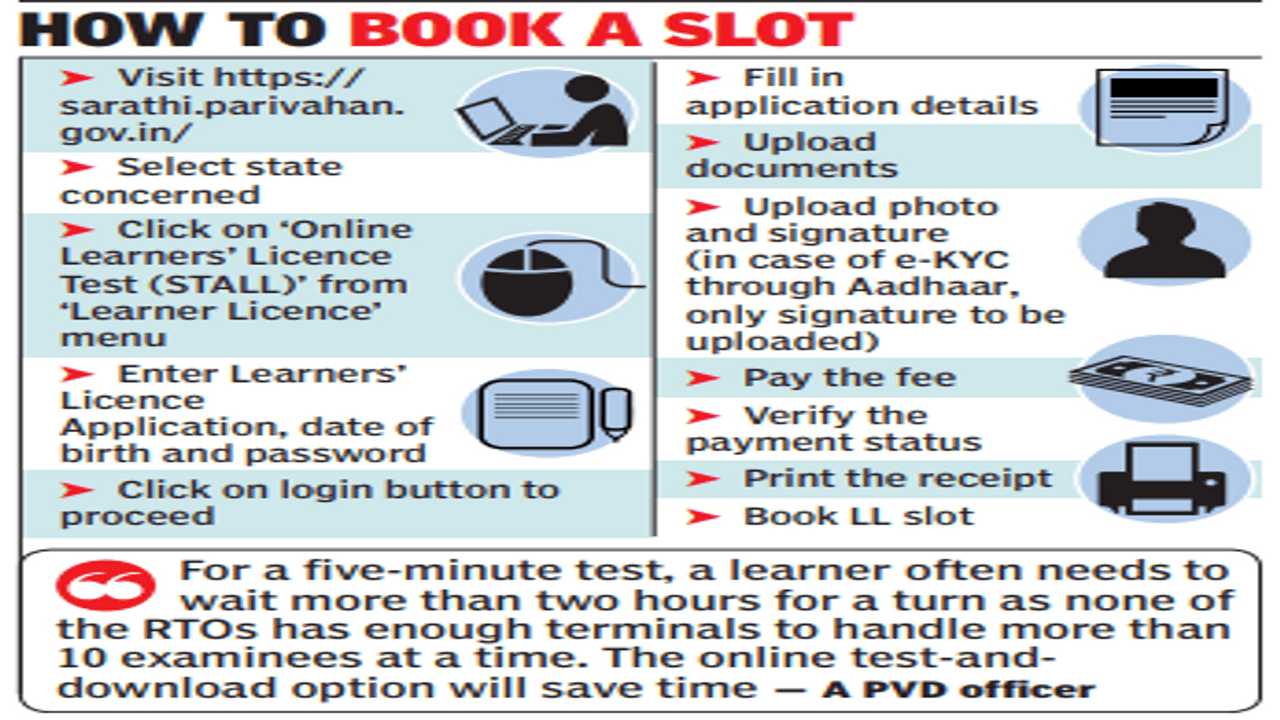KOLKATA: For a learner’s licence (LL), a candidate does not need to come to the road transport office (RTO) for a written test, but can do so from the comfort of their homes or cyber cafes. However, they need to appear physically for driving tests to get a driving licence.
Each and every learner, henceforth, needs to authenticate e-KYC by filling up an online application on the Parivahan Sarathi app. After the Aadhaar authentication, applicants can take LL test from their homes or any preferred location. The password for online LL tests will be sent as SMS to the registered mobile number linked with the Aadhaar.
This is an important reformative step. The focus should now be on the other lacunae that exist in the system for which applicants have to do a lot of running around.Times View
Immediately after his or her application, slots will be offered for the tests. The examinee will be shown a 12-minute video loaded with road rules and how their possible violations compromise road safety. The video cannot be skipped and tests will take only five minutes, said a transport department officer. Successful applicants can then download his or her learner’s licence. However, an applicant without an Aadhaar needs to visit the RTO for document verification and LL tests.
The online tests will relieve the RTOs of a massive pressure of learners’ examinees. It will also save a learner’s precious time. For a five-minute test, a learner often needs to wait more than two hours for a turn as none of the RTOs has enough number of terminals to handle more than 10 examinees at a time, said an officer of the Public Vehicles Department (PVD), which is the RTO for the core of the city.

The ministry of road transport and highways has been facilitating computerisation of more than 1,000 road transport offices across the country. Bengal has 55 such RTOs that issue registration certificates (RC) and driving licences (DL) that are valid across the country. It was necessary to define the same standards for these documents on a pan-Indian level to ensure interoperability and correctness, and timely availability of information.
Until now, the licence issuance process had been heavily dependent on motor training schools across the city. Against a hefty fee, they used to take care of everything — right from online tests to practical driving tests. The motor training schools’ manipulative practises will be of no use in such cases now, said an officer.
The Smart Card Operating System (SCOSTA) Committee set up for this purpose had recommended a uniform standardized software across the country. The Vahan and Sarathi are conceptualized to capture the functionalities as mandated by the Central Motor Vehicle Act, 1988, as well as state motor vehicle rules, with customization in the core product to suit the requirements of the 36 states.